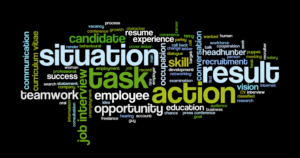PSA for Job Seekers – Keys to a successful job search
A successful job search won’t happen by accident or overnight. It also won’t happen without an investment. The following key points describe assumptions, behaviors to avoid, and actions to take if you want to get positive results from your job search efforts.
Strategy
- Investigate and vet your assumptions. Do your research. The market has changed rapidly in the past three to four years. What was true two years ago isn’t the same today. If it’s been more than two years since you conducted a job search, you may need help.
- Taking time off is a calculated risk. Assuming things will be easier in the fall or winter is a gamble. If you decide to take the summer or holiday time off, continue to do your research even if you’re not actively pursuing a new job.
- There are resume writers and career coaches. A coach will provide guidance and can produce a resume that supports a STRATEGY for your next move. A resume writer uses the info you provide, but the net result may not be what you actually need to achieve your goals.
- Just because you want to be a ballerina (or engineer, or supply chain manager, or whatever) doesn’t mean you’ll be competitive. You need to know what is realistic in your market and what it will take to get where you want to go. Job boards don’t present the bigger picture, and they don’t provide explanations for why you’re unlikely to get any traction.
Resumes
- A resume is only part of the process. It does not get you a job. A fabulous resume may open the door, but if you’re unable to talk about your experience during an interview, you’ll hit a dead-end.
- A resume writer can only work with the information you provide. They can’t magically help you move in a new direction and aren’t necessarily qualified to advise you on your next career move.
- Using keywords in your resume is essential. But adding terms you don’t understand, or tools you haven’t used, only sets you up for failure later.
- Yes, you can exceed one page. You can even use three. The point is to include only relevant data.
- Your resume and any other information you provide need to support your fit for the role you’re applying for. Use relevant examples of your work. More is not Posting a “generic” resume or randomly throwing stuff at the wall to see what happens next will only set you up for failure in the interview.
Interviewing
- Preparation for an interview begins the day you submit your application.
- A litmus test for success can be how well you follow instructions. It doesn’t bode well if your resume writer asked you questions and it took 3, 4, or 5 times for you to provide additional information or a complete response. You’ll risk losing the audience’s attention if you provide incomplete answers or beat around the bush during an interview.
- Speak to the position you’re interviewing for. The employer needs to believe that you’re committed to it. Once again, more is not Over-speaking the position you’ve applied for will backfire. If you talk about when you were a rock star in a higher level or completely different role, the interviewer will hear: “This role is beneath me.” You’ll only waste time trying to impress them with the wrong things and end up without an offer.
- Casually reviewing the job description before an interview is not enough to set you up for success. Asking for “tips” the night before an interview won’t allow enough time to thoroughly prepare. The hard truth is that you’ve got to take enough time to THINK about what you’ll be doing and consider who you’ll be working with. Comprehensive research will shed light on clues to help you relate to the interviewer, vs. relying on “being cute” to win them over.
- Scripting your answers to typically asked questions and considering relevant examples of your work takes time and effort. Scripted responses are not intended to sound canned. Instead, the process allows you to practice getting your stories straight. It will help you say more with fewer words. Winging it will typically lead to missing key points. You can also talk too much about the wrong things and end up wasting everybody’s time.
- Always ask about the next steps and when you should expect to hear back from an employer at the end of an interview. (Caveat: Ask the hiring manger or recruiter. Team members may not be in a position to tell you.) These questions aren’t being pushy. You’re merely asking for information. This information allows you to follow up accordingly instead of waiting and wondering.
- Yes, send a thank you email. Do not restate your entire cover letter or resume. Instead, acknowledge what you heard/learned that was important to each person you spoke with. Re-confirm when you will check back based on the timelines they provided.
Timing (more strategy)
- Be very aware of timelines so you can juggle offers if they occur. Don’t put your least favorite interview ahead of another if there’s an opportunity to delay a few days. This doesn’t mean you should push an interview out weeks – just be aware of timing. Using the time to finish the process with more than one employer allows you the opportunity to get more than one offer to consider.
- Unless you are a unicorn, it will do you no good to play one employer against another. Don’t lie and pretend you have an offer you haven’t received. If asked if you are interviewing elsewhere, you can simply say: “This is the job I am most excited about!” At that precise moment, it is true. Telling an interviewer all of your business may kick you out of the running. Sometimes they know they can’t move as fast as they assume they need to. Or they believe you aren’t really that interested in them.
- You’re in a better position to negotiate when you have two offers. But proceed with caution. You still need to be able to present VALUE. You’ve got to support a request for more money in better terms than saying: “XYZ Company offered more.” I recommend getting help with negotiations instead of assuming anything.
- Don’t put all your eggs in one basket. Even after the best round of interviews, continue to pursue other leads. It’s not over until you receive a written offer. I recommend that you accept interviews at another company you have a strong interest in if the opportunity arises after you have accepted an offer but have not yet started working. You just never know…
These key points cover the majority of issues job seekers face. Begin with these tips, and let me know how your results improve.
For more career advice, check out my webinars on Unbeatable Interviewing Techniques, Strategic Networking & Informational Interviewing and Negotiating Compensation and follow me on LinkedIn and Twitter.









